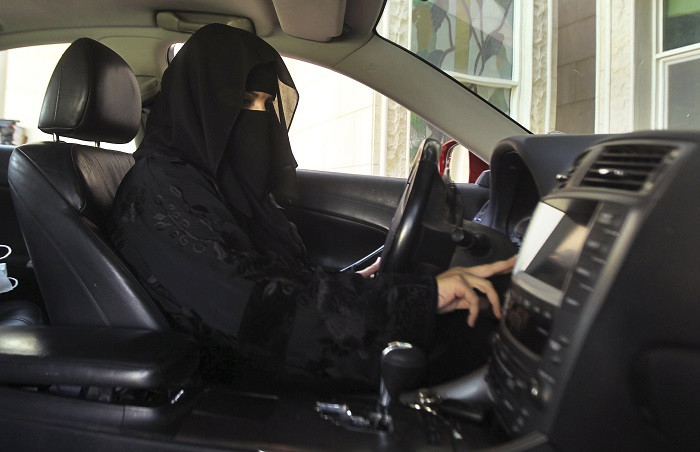Saudi Arabia Considering Lifting Ban on Female Drivers… If They Are Over 30
King Abdullah's advisors make proposals to lift driving ban in secret closed session

Saudi Arabia has announced that it is considering plans to lift its ban on women driving.
The Shura Council – King Abdullah ibn Abdilazīz's advisors – recommended changing to the law to allow women over 30, who are not wearing make-up, to drive before 8pm.
A member of the council who spoke on condition of anonymity told the Associated Press that the recommendations were made in a secret closed session within the past month.
Under the proposals, only women over 30 would be allowed to drive, and they would need permission from a male relative – usually a husband or father, but in the absence of those, a brother or son.
Women would also only be allowed to drive between 7am and 8pm from Saturday to Wednesday, and between noon and 8pm on Thursday and Friday.
An official said conditions would require women to wear conservative dress with no make-up when driving. Also, women would be able to drive without a male relative in the car in cities, but outside of cities a male chaperone would need to be with them.
The 150-member council said a "female traffic department" supervised by religious agencies would need to be created to deal with any problems female drivers encountered and to issue fines.
The long-standing ban has forced families to hire live-in drivers for women. Those unable to afford drivers have been left with no option but to rely on male relatives to ferry them to work, school, shopping or to the doctor.
Over the past year, several female activists have protested against the driving ban by posting videos or pictures of themselves behind the wheel on social media to draw attention to their cause.
In June 2011, around 40 women drove in a protest sparked by the arrest of a woman who posted a video of her driving online.
The driving ban forms part of a series of restrictions in Saudi Arabia that are based on a strict interpretation of sharia law known as Wahhabism. Under these laws men and women are strictly segregated and women are required to wear headscarves (hijabs), veils (niqabs) and loose-fitting garments called abayas (or an aba).
Women are also required to obtain permission from men to enrole in higher education, travel, get married, or undergo certain surgical procedures.
Last year, Saudi Arabia's Grand Mufti Abdul-Aziz ibn Abdullah Al Shaykh – the highest religious authority in the country – said the ban on women driving protects society from "evil".
The Shura Council is appointed by King Abdullah and acts as the Islamic country's closest equivalent to a parliament, although it has no legislative powers. In 2013, the king appointed women to the council for the first time, and there are now 30 female members.
© Copyright IBTimes 2025. All rights reserved.





















